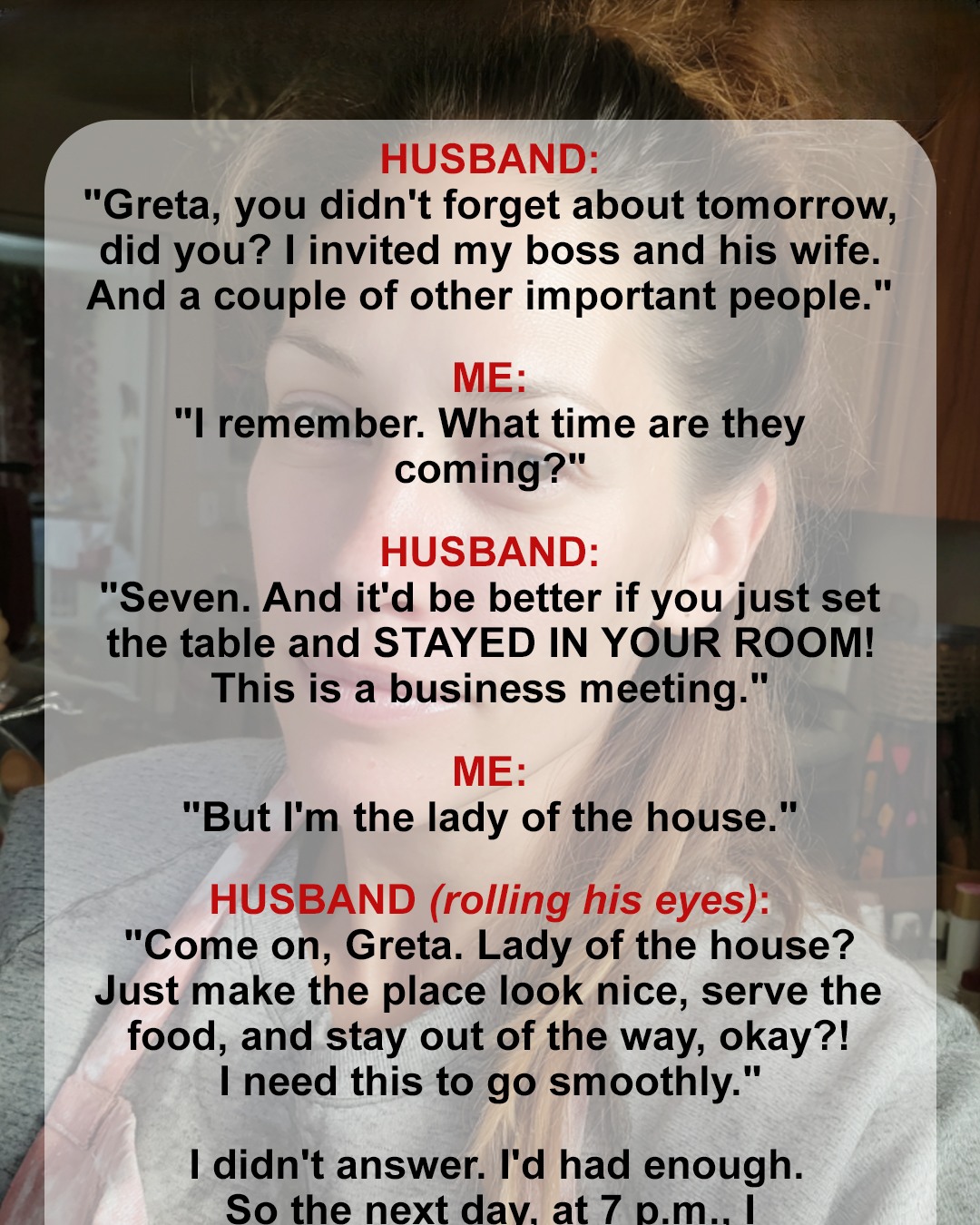For years, Greta believed she was helping her husband Rett climb the corporate ladder by putting her own dreams aside. She had closed her small graphic design studio, moved across cities whenever his job demanded, and hosted dinner after dinner for his colleagues. But when Rett told her to stay out of sight and “just serve food” during an important dinner with his boss, something inside her changed. It wasn’t just about one evening—it was about years of being treated like she was invisible in her own home.
What Rett didn’t know was that Greta had quietly rebuilt her design career on her own terms. Under her maiden name, she had taken on freelance clients and recently developed a thriving brand for Sheila—the very wife of Rett’s boss. On the night of the dinner, Greta prepared the meal just as he expected, but when Sheila praised her work, Greta chose that moment to reveal the truth. The room went quiet, and Rett suddenly realized his wife was not the background figure he had always assumed.
After the guests left, tension filled the air. Rett accused Greta of embarrassing him, but she stayed calm. With quiet determination, she explained that she had spent too long being overlooked and would no longer accept it. Then she handed him papers she had already prepared—divorce documents. For the first time, Rett saw that his wife had found her strength, and it was a strength that no longer revolved around him.
In the weeks that followed, Greta transformed her life. She turned Rett’s old study into her own creative studio, filled it with light and color, and poured her energy into the clients who valued her talent. When the divorce was finalized, she left Rett with a simple message: “If you treat someone like wallpaper, don’t be surprised when they decide to leave the room.” Greta had finally stepped forward, not as someone’s silent supporter, but as the creator of her own future.
